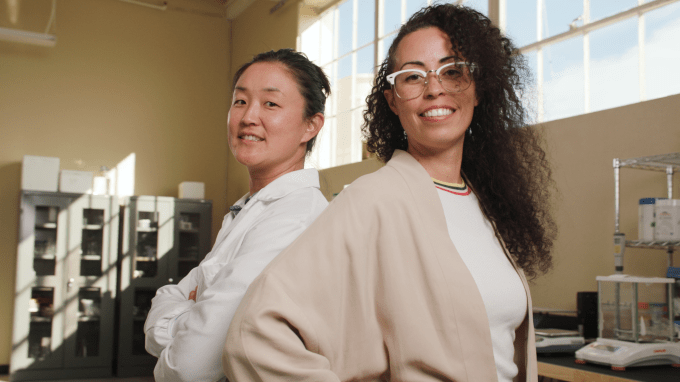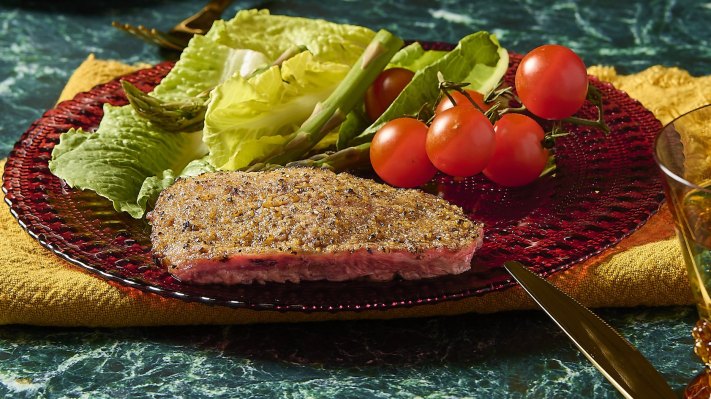Products You May Like
Achieving similar marbling and texture as a cut of animal meat has been a challenge for food technology startups aiming to produce whole cuts of cultivated meat, but Novel Farms believes it has cracked the code with its pork loin.
Armed with $1.4 million in SAFE notes, or simple agreement for future equity, the company, founded by Nieves Martinez Marshall and Michelle Lu in 2020, is making cultivated meat — grown from cells instead of in an animal; they met as postdoctoral scientists in the molecular and cell biology department at the University of California at Berkeley.
Martinez Marshall told TechCrunch it has “successfully cultivated the world’s first slaughter-free pork loin that displays the marbling and texture of a real muscle cut.”
“There’s no other company right now doing pork loin,” she said when asked how the company could make that kind of “world’s first” statement. The closest competitors being Higher Steaks in London and CellX in China, both doing pork belly, she added.
Other cultivated meat companies focus on making food, in most cases from ground sources. For example, sausages (Meatable), burgers (SCiFi Foods) and chicken (UPSIDE Foods), which are easier structures to make than whole cuts, Martinez Marshall added. Bluu Seafood, a German company developing lab-grown seafood, debuted its fish sticks and fish balls this week. The products are made from cultivated fish cells and plant protein.

Novel Farms co-founders Michelle Lu and Nieves Martinez Marshall. Image Credits: Novel Farms
Though Martinez Marshall didn’t want to get into the weeds about Novel Farms’ technology, she explained that it is developing a proprietary microbial fermentation approach to produce the scaffolding needed to create the whole cuts, but in a lower-cost way. It does this by using inexpensive microorganisms commonly used in food.
However, unlike peers in the cultivated meat industry adding biomaterials, like alginate, cellulose and mycelia, for cells to attach themselves to make the meat structure, Novel Farms’ technology is able to completely bypass that step, reducing scaffolding production costs by 99.27%. Martinez Marshall says this means scaling the product will be faster, as will achievement of price parity with traditional meat products.
The company has already demonstrated that its technology is viable and it can make a piece of cultivated meat. Still, she doesn’t expect to get the pork loin into the hands of consumers until 2025, with commercial plants coming online in 2026, followed by mass production in 2027.
The SAFE investment comes from a group of investors, including a majority stake by Big Idea Ventures, and financing from Joyance/Social Starts, Sustainable Food Ventures, Good Startup, CULT foods and strategic angel investors. Novel Farms is also starting a seed round.
Plans for the capital include hiring a team (currently it is just Martinez Marshall and Lu) and scaling.
“We just have a very good, efficient scaffold, and the cells attach very well,” Martinez Marshall said. “That’s something that nobody else has. Once we confirm and scale with a bioreactor, then we will be the most affordable of all the companies.”
